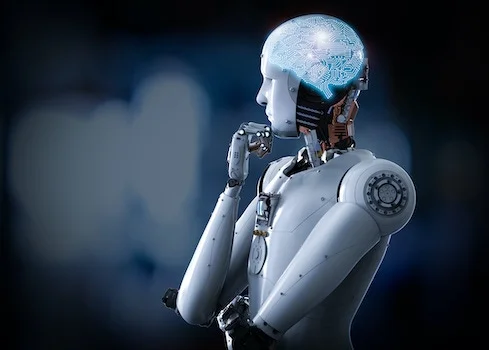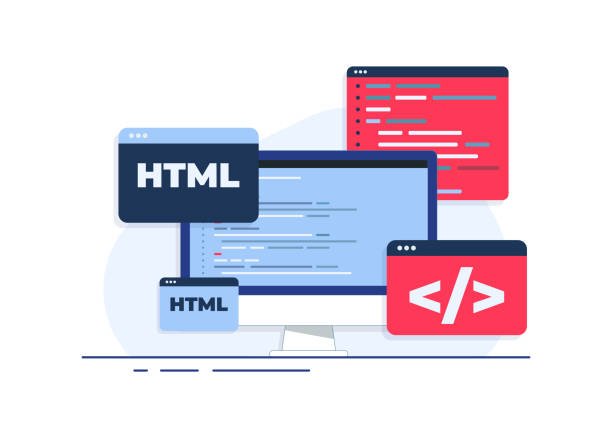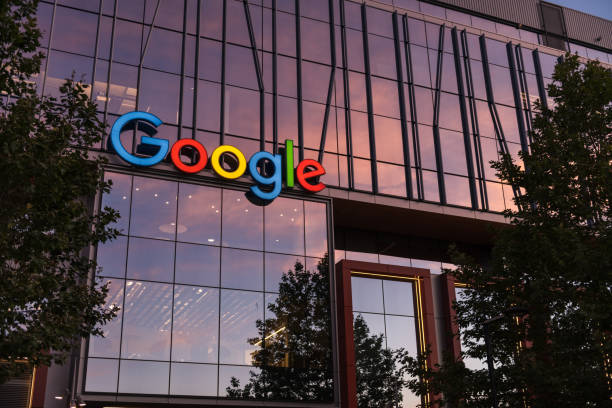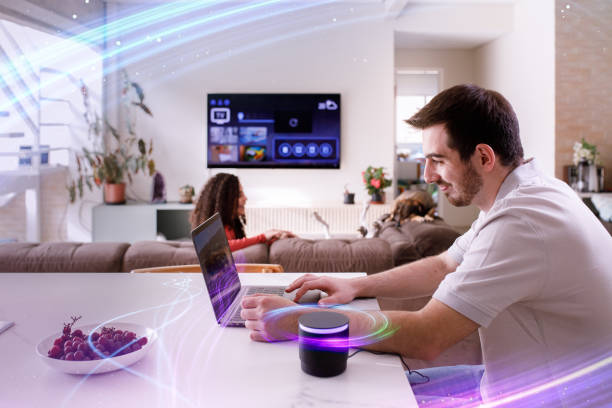As we approach the halfway point of the 21st century, it’s clear that the pace of technological advancement is not just accelerating—it’s leaping. Every day, innovations are pushing the boundaries of what we once thought possible. From artificial intelligence to renewable energy, quantum computing to digital health, the world is on the cusp of a revolution. The question is no longer “What will technology look like in the future?” but “How soon will it arrive?”
By 2025, some of the most transformative tech trends will be in full swing, reshaping industries, societies, and individual lives. Whether it’s the rise of autonomous vehicles, the proliferation of 5G networks, or the advent of brain-machine interfaces, the future is knocking on our door. But beyond these headline-grabbing trends, there are subtler, equally fascinating developments poised to change the way we live, work, and interact with each other.
In this article, we’ll take a deep dive into the top technology trends to watch in 2025, exploring not just what will emerge, but how it will impact us, and what we can expect in the years to come.
1. Artificial Intelligence: From Narrow to General
Artificial intelligence (AI) has already become a part of our daily lives. From the recommendation engines on streaming platforms to virtual assistants like Siri and Alexa, AI is embedded in countless applications. But by 2025, AI will have evolved far beyond its current narrow implementations.
The AI of tomorrow is not just about mimicking human behavior in specific domains; it will begin to exhibit more general capabilities—referred to as Artificial General Intelligence (AGI). While AGI is still a distant goal, significant strides will be made in creating systems that can handle multiple tasks with a degree of autonomy and adaptability that feels human.
In 2025, expect AI to:
- Automate complex decision-making: AI will handle complex and time-sensitive tasks that require analysis of vast amounts of data, improving industries such as finance, healthcare, and logistics. By doing so, it will free up human workers to focus on higher-level strategic thinking and creativity.
- Enhance personalization: AI-driven personalization will reach new heights. Businesses will use AI not just for tailored recommendations but for deeply personalized products and services. Imagine a healthcare system where AI analyzes your genetic makeup, medical history, and lifestyle choices to provide you with a customized wellness plan.
- Be embedded in every aspect of life: In 2025, AI will become more invisible and ubiquitous. It will be woven into the fabric of smart homes, smart cities, and even in the workplace, taking over repetitive and mundane tasks while giving humans the freedom to focus on more meaningful work.
2. Quantum Computing: Unlocking Infinite Possibilities
Quantum computing is one of the most exciting fields in technology. Although it’s still in its infancy, the breakthroughs we’re expecting in the next few years will change the way we approach problems in physics, cryptography, medicine, and artificial intelligence.
By 2025, quantum computers will not be commonplace, but they will begin to make significant strides toward practical applications. Unlike classical computers, which process information in binary (0s and 1s), quantum computers use quantum bits (qubits) that can exist in multiple states simultaneously, exponentially increasing their processing power.
In the coming years, quantum computing will:
- Revolutionize problem-solving: Quantum computers will be able to solve problems that would be impossible for traditional computers to tackle. This includes simulating complex molecular structures for drug development, optimizing supply chains in ways that were previously unimaginable, and cracking problems in artificial intelligence that were once thought unsolvable.
- Advance cryptography: One of the most significant uses of quantum computing is in breaking and creating encryption protocols. By 2025, quantum cryptography will be used to secure sensitive data, making it virtually impossible for hackers to decipher messages or steal information without detection.
- Boost research and development: Quantum computing will accelerate research in fields like chemistry, physics, and materials science, allowing scientists to simulate and understand complex phenomena that could lead to breakthroughs in energy, climate science, and medicine.
3. The Metaverse: A New Virtual Frontier
The concept of the metaverse has been around for some time, but by 2025, it will be far more than a speculative buzzword. In fact, it will be a major part of how we interact with the digital world. The metaverse is essentially a collective, virtual shared space created by the convergence of virtually enhanced physical reality and the physical world.
While we’re still in the early days of metaverse development, by 2025, expect:
- Immersive experiences: With the proliferation of virtual reality (VR) and augmented reality (AR) technologies, the metaverse will offer deeply immersive experiences. Instead of using your computer screen or phone to interact with the internet, you’ll step into fully realized 3D environments. You might attend concerts in virtual arenas, participate in business meetings as avatars, or shop in digital stores that look and feel like their real-world counterparts.
- Work and education in the metaverse: Remote work and online learning will shift to more immersive, interactive experiences. Rather than a flat video call, you’ll interact with coworkers and students in virtual meeting rooms, each of you represented as an avatar in a shared digital space. This will bring a sense of presence and interaction that today’s video conferencing apps can’t replicate.
- Economic and social interactions: Expect entire virtual economies to emerge within the metaverse. You’ll buy, sell, and trade digital assets, from virtual real estate to NFT art, all using cryptocurrencies or other digital currencies. As the metaverse grows, social interactions will also take place in these virtual worlds, creating new avenues for entertainment, communication, and community-building.
4. 5G Networks: Connecting the Unconnected
By 2025, 5G networks will be ubiquitous, providing lightning-fast wireless internet speeds and ultra-low latency. This leap in connectivity will open up a whole new world of possibilities, particularly in areas like IoT (Internet of Things), autonomous vehicles, and smart cities.
In the next few years, 5G will enable:
- Massive IoT deployments: The ability to connect millions of devices simultaneously with low latency will allow for the widespread adoption of IoT devices. From smart cities with interconnected traffic lights and pollution sensors to agriculture powered by precision farming tools, 5G will bring connectivity to nearly every aspect of our lives.
- Autonomous vehicles: The 5G network’s ability to provide real-time data transfer will be critical for the widespread adoption of autonomous vehicles. Cars will be able to communicate with each other and infrastructure in real-time, enhancing safety and making traffic more efficient.
- Advanced healthcare: With 5G, remote surgery, telemedicine, and real-time health monitoring will become more reliable and widespread. Doctors will be able to perform procedures from thousands of miles away, using robots controlled by high-speed internet connections, while wearables will provide continuous health data to improve preventive care.
5. Renewable Energy: The Green Revolution of Tomorrow
In 2025, the world will have made significant progress in the transition to renewable energy. Solar and wind power will continue to dominate the energy sector, but innovations in energy storage, grid management, and sustainable energy production will push this transition even further.
By 2025, expect:
- Affordable energy storage solutions: One of the biggest challenges of renewable energy is the intermittency of sources like solar and wind. New breakthroughs in battery technology and energy storage will make it possible to store large amounts of energy more efficiently and at a lower cost, ensuring that clean power is available even when the sun isn’t shining or the wind isn’t blowing.
- Green hydrogen: Hydrogen fuel cells, powered by renewable energy sources, could be the key to decarbonizing industries like transportation and heavy manufacturing. By 2025, green hydrogen could be a major part of the energy landscape, helping to decarbonize sectors that are hard to electrify, such as shipping, aviation, and industrial manufacturing.
- Smart grids and decentralized energy: Smart grids will allow for more efficient distribution of renewable energy, while decentralized energy systems will empower individuals and communities to generate and manage their own clean power. From home solar panels and wind turbines to local energy cooperatives, renewable energy will be more democratized than ever before.
6. Health Tech: The Age of Personalized Medicine
By 2025, healthcare will undergo a transformation powered by technological innovations. We’re entering an age where personalized medicine, genomics, and wearable health devices will combine to create a more proactive and data-driven approach to healthcare.
Key advancements will include:
- AI-driven diagnostics: AI will continue to improve healthcare by aiding in faster, more accurate diagnostics. From analyzing medical imaging to predicting disease outbreaks, AI algorithms will help doctors make better decisions and improve patient outcomes.
- Wearable health monitoring: Wearable devices like smartwatches will not only track fitness but will also monitor vital health metrics such as heart rate, blood pressure, and blood oxygen levels in real-time. By 2025, these devices will integrate more seamlessly with healthcare systems, alerting doctors about any abnormalities or potential risks.
- Genetic treatments: Advancements in gene editing, particularly CRISPR technology, will open up the possibility for highly personalized treatments based on an individual’s genetic makeup. By 2025, treatments for previously untreatable genetic conditions will begin to emerge, offering hope for curing diseases like sickle cell anemia and certain types of cancer.
7. Autonomous Systems: The Dawn of the Robotic Revolution
By 2025, autonomous systems will be all around us. From self-driving cars to drones and robots, machines that once required human input will become more capable, reliable, and integrated into society.
Autonomous systems will impact several areas:
- Transportation: The most obvious application of autonomous technology is in transportation. By 2025, fully autonomous cars, trucks, and delivery drones will be commonplace. The logistics and transport sectors will see a massive shift, with self-driving vehicles moving goods faster and more efficiently, while reducing human error and traffic-related accidents.
- Robotic assistants: In the home and workplace, robots will become more adept at handling tasks like cleaning, cooking, and delivering goods. These robots will rely on AI and advanced sensors to navigate their environments, making them useful in a wide range of applications.
- Industrial automation: Robotics will continue to advance in manufacturing, with robots working side by side with human employees to increase efficiency, reduce costs, and ensure worker safety in hazardous environments.
Conclusion: A Glimpse Into the Future
As we approach 2025, it’s clear that the technological landscape is poised for a dramatic transformation. The innovations of tomorrow—AI, quantum computing, renewable energy, autonomous vehicles, and more—will change not just the tools we use but the very way we live.
The future isn’t just about flashy new gadgets. It’s about creating a more connected, sustainable, and intelligent world. A world where technology works in harmony with humanity, helping us to solve problems, improve our lives, and build a better future for all.
The question isn’t whether these trends will arrive—but how quickly they’ll change the world. And as we stand on the threshold of this brave new future, one thing is certain: the next few years will be nothing short of revolutionary.





